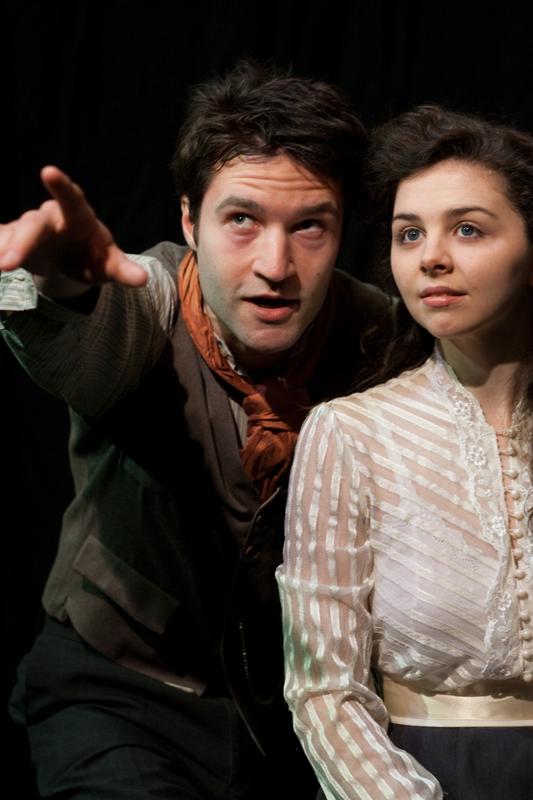 A small theatre space (and Greenwich Playhouse is truly tiny) has the effect of placing actors under intense scrutiny. Sometimes that enables the audience to understand and clarify the detail, and sometimes it means you can’t see the cherry orchard for the trees. Galleon Theatre’s production of Chekhov’s play at the Greenwich Playhouse falls into the latter category. There are some good performances that explore Chekhov’s characters, and there are moments when the power of the language and imagery are vivid – but some larger flaws in Bruce Jamieson’s production overshadow these positives.
A small theatre space (and Greenwich Playhouse is truly tiny) has the effect of placing actors under intense scrutiny. Sometimes that enables the audience to understand and clarify the detail, and sometimes it means you can’t see the cherry orchard for the trees. Galleon Theatre’s production of Chekhov’s play at the Greenwich Playhouse falls into the latter category. There are some good performances that explore Chekhov’s characters, and there are moments when the power of the language and imagery are vivid – but some larger flaws in Bruce Jamieson’s production overshadow these positives.
Chekhov’s play is as much about what happens off stage as what we see on stage, almost all the exciting dramatic action is reported, for instance the auction and the ball. This pays off when, for instance, Ranyevskaia (played by Maggie Daniels) movingly describes her child’s death in the river on the estate. However, the wider context of the play, the collapse of the Russian ruling class and an underlying economic and social malaise, is less clearly defined and this production fails to explore its wider significance.
The cherry orchard is itself a symbol of departed innocence and of the looming threat of urbanisation as it is cut down to provide housing. The symbolic elements of the production are successfully contained within the set – cherry blossom petals are strewn like confetti at the start of the play, and dustsheets shroud the set at the end. The romantic piano music, however, threatens to drown the play’s edge along with the actors’ voices.
Amongst some strong performances the love pairings are particularly well played – Robert Paul’s repressed entrepreneurial Lopakhin is an excellent foil to Suzanne Goldberg’s acerbic Varia. So too Nik Drake’s enthused proletariat idealist seems a fitting partner for Clare McMahon’s bouncy, playful and wide-eyed Ania. Their general sense of hope, rightly, contrasts with the pitiful denial and ‘fear of being alone’ that haunts their elders.
This production never successfully gets to grips with the parasitical group of hangers-on created by Chekhov to pick over the corpse of a dying lifestyle. It’s difficult believe with any conviction in the intensity of the subtext that should be bubbling under the surface. There are some curious directorial choices that make this assembly of characters an improbable group – I would have them nowhere near my own imaginary cherry orchard – in particular an oddly corseted Charlotta seemed to drift in and out of the action for no particular purpose. On the whole there is indeed, too much drifting.
I feel a real party pooper criticising a production that marks Galleon Theatre’s 20th anniversary and Chekhov’s 150th, but The Cherry Orchard never achieves the ambitious standards that the company sets for itself.